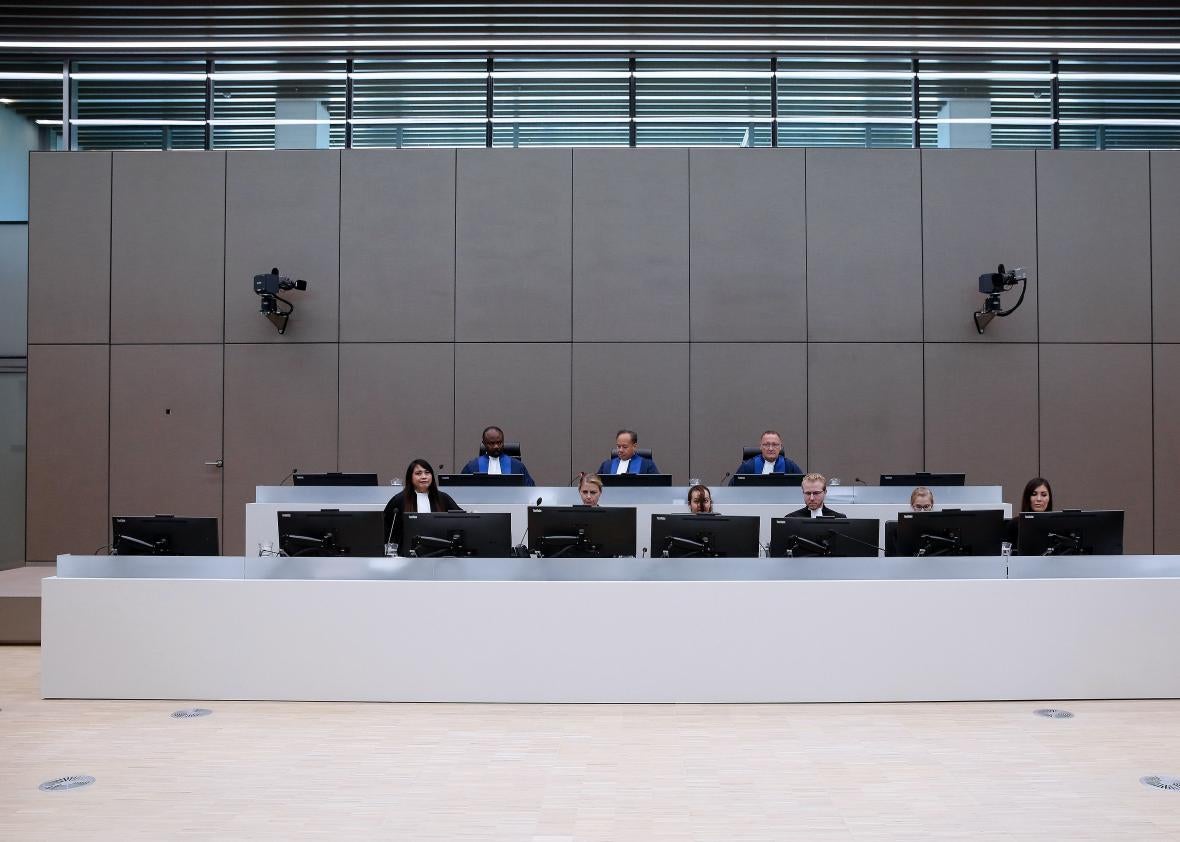Russian President Vladimir Putin has issued a directive withdrawing Russia from the International Criminal Court. The move comes just after the Hague-based court, which was founded to prosecute war crimes and crimes against humanity, published a report classifying the annexation of Crimea as an occupation. The decision also comes amid calls for Russian airstrikes in Syria to be investigated as a war crime.
On its own, the move doesn’t mean much. Russian signed the Rome Statute establishing the court in 2000, but never ratified it, so the court’s jurisdiction doesn’t extend to Russia anyway. (The United States is in the same situation.) But it’s another blow to an institution already reeling from what looks to be the beginning of a rush to the exits by members.
South Africa formally withdrew from the court last month, along with Burundi, and Gambia—the home country of the ICC’s chief prosecutor Fatou Bensouda. Kenya, whose president, Uhuru Kenyatta, beat a charge of inciting ethnic violence, and Uganda, have also suggested they might withdraw. There’s even talk of a collective withdrawal by the African Union. The court has been trying to fight the perception that it’s an institution set up by the west to try Africans. (The court has never indicted a non-African and nine of its 10 active investigations are on the continent.) In open mockery of the court, Sudanese President Omar al-Bashir continues to travel widely in Africa, Asia, and the Middle East despite an ICC indictment for crimes against humanity.
Moreover, the court has been distressingly unable to address the most pressing humanitarian catastrophe in the world, the war in Syria, with no charges against Bashar al-Assad’s government or ISIS. Neither Iraq nor Syria are members of the court. Their cases could be referred to the court by the U.N. Security Council, but this would open up all actions in Syria to investigation, something that Russia—and for that matter the United States—is not anxious to do.
The court is making an effort to expand its scope. It’s issued a warning to Philippines President Rodrigo Duterte over his brutal drug crackdown. There’s an ongoing inquiry—which is not the same as a full investigation—into possible war crimes committed during the 2014 Gaza War. Bensouda also announced on Monday that she has reasonable basis to believe that U.S. troops committed war crimes in Afghanistan and is considering a full investigation.
But the U.S. would almost certainly not have cooperated with an Afghanistan investigation even if Hillary Clinton had been elected last week. As things stand the notion of U.S. cooperation is laughable. The new administration will almost certainly reverse the Obama administration’s limited and tentative engagement with the court.
The court was founded on the notion that national sovereignty shouldn’t prevent the upholding of human rights norms or the punishment of crimes against humanity. But the institution is looking increasingly irrelevant and the ideals behind it, sadly, increasingly quaint.
